Pasifika activists are making history with their world-first campaign demanding countries be held legally responsible to protect their people from the impacts of the climate crisis.
We have now reached a critical point in the legal campaign and my team and l have travelled to the International Court of Justice (ICJ) in The Hague for the oral hearings to stand as one family with climate activists worldwide.
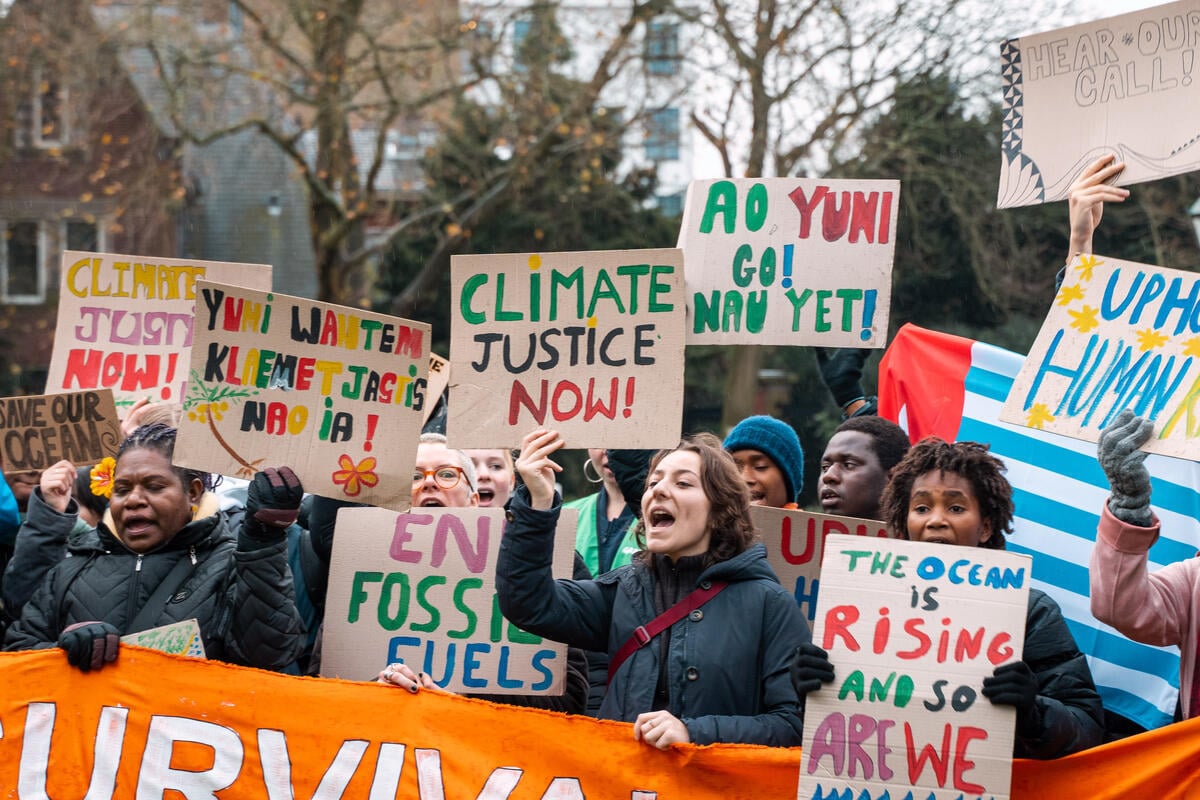
Approximately 100 countries and inter-governmental organisations will present their arguments, some of these including testimonies from impacted community members, with hearings expected to last until 13 December 2024. We are at the precipice of one of human history’s most consequential international cases.
If these landmark hearings are successful it could mean greater human rights protections for those most impacted by climate change.
This process has made it difficult for the voices and stories of our communities to be heard, so we, together with the most resilient human beings from across the world, will make as much noise outside the International Court of Justice. Hence, the lived realities of our people reverberate in every corner of the chambers of that courtroom.
Over the next two weeks, we are on the ground at the ICJ in the Hague to support our allies during the Global Climate Justice Peaceful Demonstration at the Peace Palace, the People’s Hearings, the Candle-light Vigil and Talanoa for Climate Justice, and the People’s Museum. You can follow the activities on the ground on our live blog!
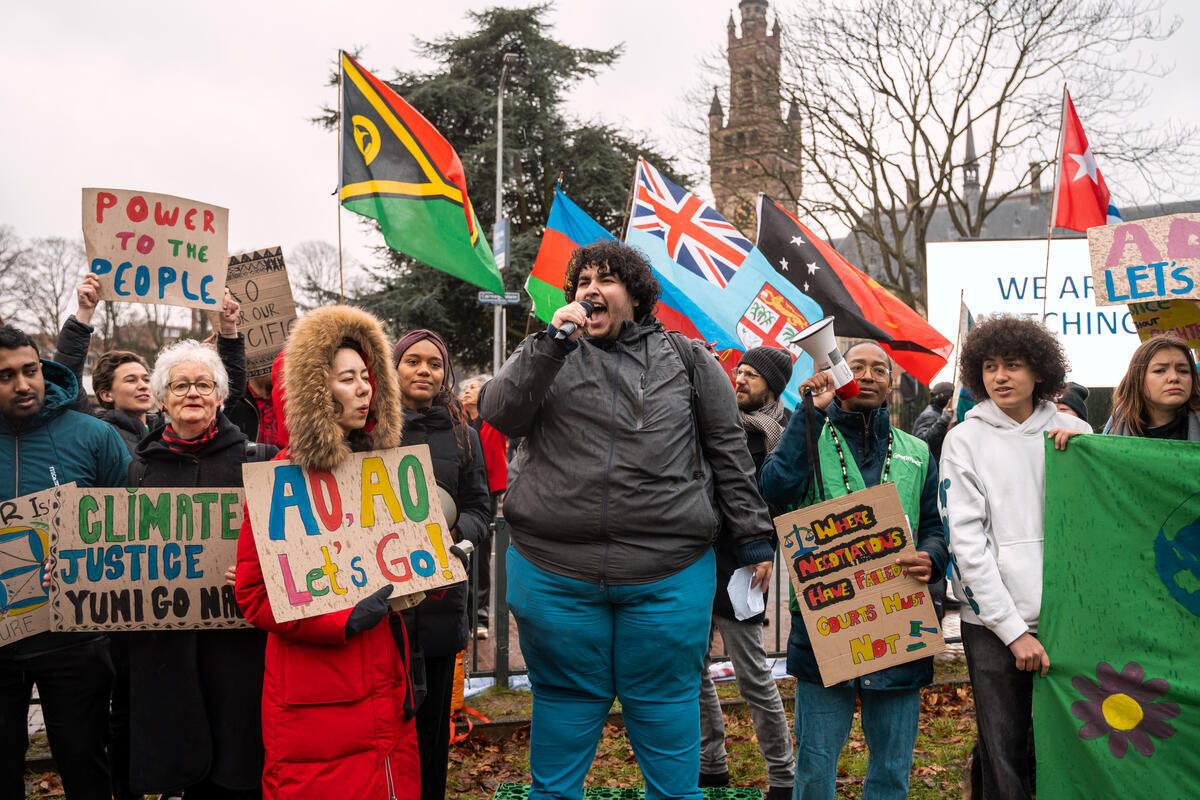
Why do we need a legal opinion on climate obligations from the highest court in the world?
The International Court of Justice Advisory Opinion (ICJAO) represents a once-in-a-lifetime opportunity for the international community to address the climate crisis through the lens of obligations on States. Pacific Island nations are already experiencing the severe effects of climate change: rising sea levels, extreme storms, tidal inundation, food and water insecurity, and displacement are becoming all too common. These impacts threaten not just physical survival, but the very culture and identity of Pacific communities.
Too often, those who have contributed the least to climate change are bearing the greatest costs. But the Pacific is standing strong and fighting to preserve its land, its people, and its future generations from a crisis they did not cause, but are forced to bear.
Now, this fight is taking a historic leap forward. The ICJAO offers the world’s highest court a chance to provide a legal framework that can guide global climate policy.
A strong opinion from the ICJ will not only provide much-needed clarity on the responsibilities of countries, but it could also increase ambitions during global climate negotiations, ensuring that they reflect the full breadth of international law and human rights protections.
The stakes could not be higher. If the judges of the ICJ issue a strong advisory opinion, it will not only provide legal clarity for climate action but will also provide a compass for the future—one that guides nations toward urgent and radical action to protect vulnerable populations, ecosystems, and future generations in the Pacific.
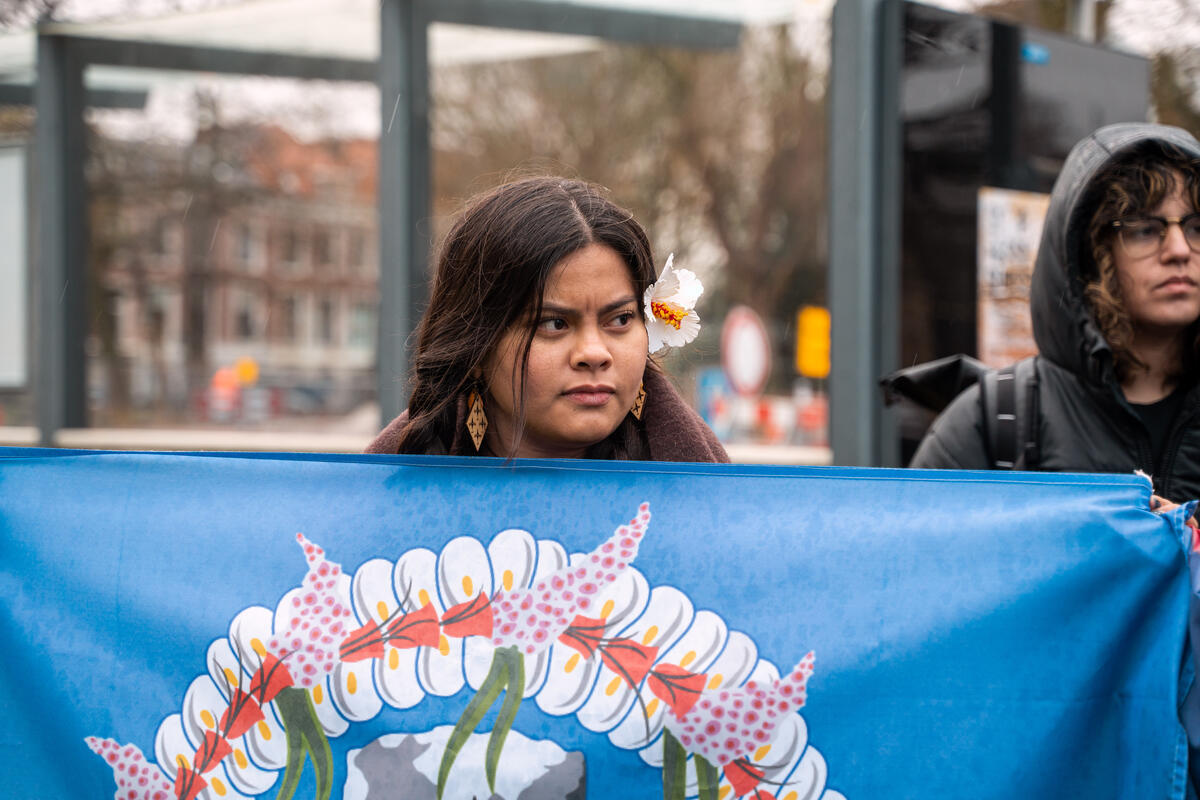
Greenpeace’s role in the mobilisation for climate justice
It all began in 2019 with a small group of young law students in the Pacific, now known as the Pacific Islands Students Fighting Climate Change (PISFCC), who were fueled by a deep sense of duty to protect and fight for our people and our planet.
The initiative powered by PISFCC soon grew into a global movement of youth led by the World’s Youth for Climate Justice, Alliance for a Climate Justice Advisory Opinion and a network of partner organisations like ‘Friends of the Initiative’, academia, and researchers.
Together with the government of Vanuatu and a handful of civil society organisations, including the Greenpeace network, we dared to dream of holding the world’s biggest polluters accountable for the devastating impacts of climate change on our beloved Pacific Islands, Australian communities, and countries facing vulnerabilities because of the climate crisis worldwide.
From the beginning of the campaign, Greenpeace Australia Pacific has been a key partner in amplifying the voices of Pacific leaders, youth activists, and communities calling for climate justice. Our 2023 Pacific Climate Justice Ship Tour on the Rainbow Warrior was a critical step in this mobilisation, as we worked to raise awareness of the ICJ process and encourage public submissions to the court. We also highlighted the urgent need for legal clarity on the obligations of states to protect vulnerable populations from climate harm.
Our role extends beyond just raising awareness. The Greenpeace network has been advocating for climate justice and human rights at every step of the ICJ process. By partnering with local communities, Indigenous groups, and youth activists, we are ensuring that their stories and demands are at the forefront of the global climate conversation at events like the United Nations Framework Convention on Climate Change Conference of Parties (UNFCC COP), the United Nations General Assembly (UNGA). The Pacific leaders’ endorsement of the ICJAO bid has galvanised support from around the world, but we know that the fight is far from over.
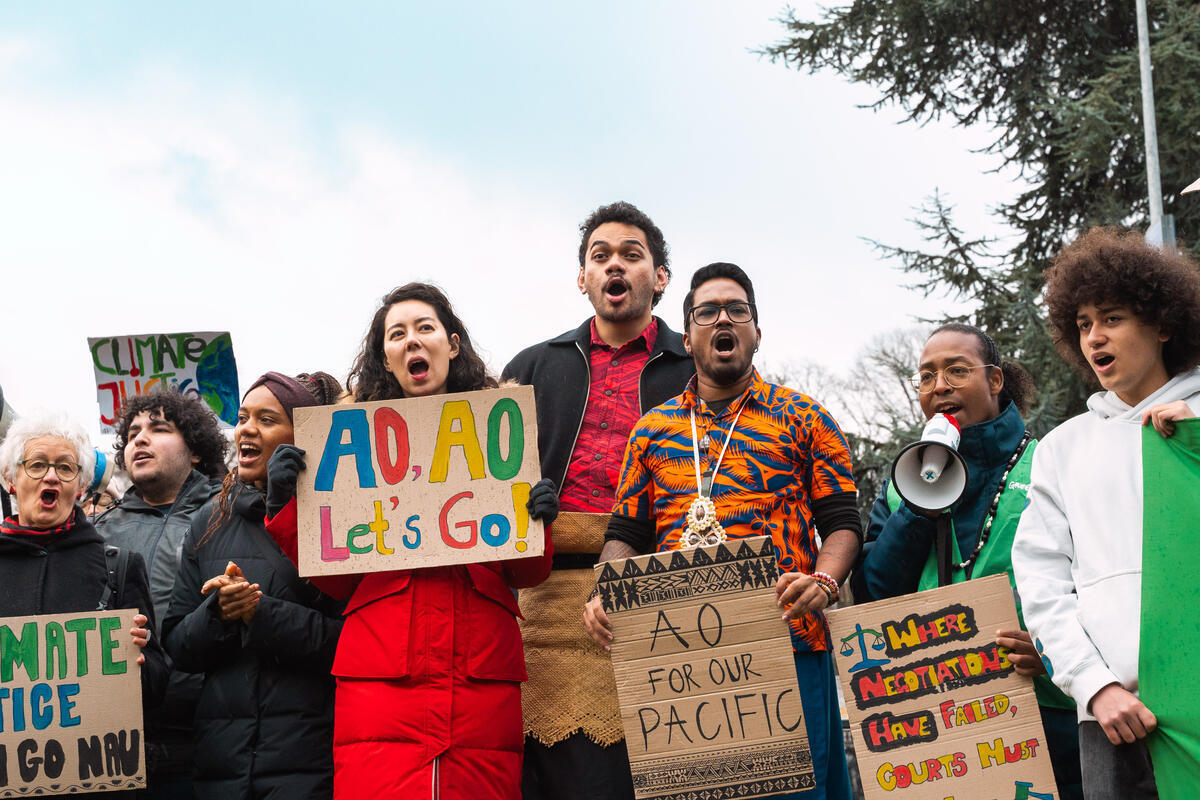
In 2024, Greenpeace Australia Pacific celebrated a significant milestone in the campaign as countries began submitting their arguments to the ICJ. The final advisory opinion will be shaped by these written submissions, which detail harrowing testimonies from communities across the Pacific and around the world, humanising their experiences of how the climate crisis is impacting their communities, their livelihoods and their culture. This was a pivotal moment in the legal journey, marking the point at which international law would begin to grapple with the human rights implications of climate change.
In relation to Greenpeace International’s written submission, the (then) United Nations Special Rapporteur for the Environment David Boyd said it was ‘one of the most powerful legal documents that I have ever read, weaving stories and law into an unorthodox but compelling brief’.
As oral submissions are presented before the Court, Greenpeace International and Australia Pacific are committed to continuing to push for a strong advisory opinion—one that will provide a legal framework for the accountability of nations and ensure that the voices of frontline communities continue to be heard. This moment is pivotal, and it is up to us all to ensure the ICJ judges deliver on the promise of this historic campaign.
Our teams worked closely with legal experts, policymakers, and affected communities to ensure that the voices of those most impacted by climate change were represented.
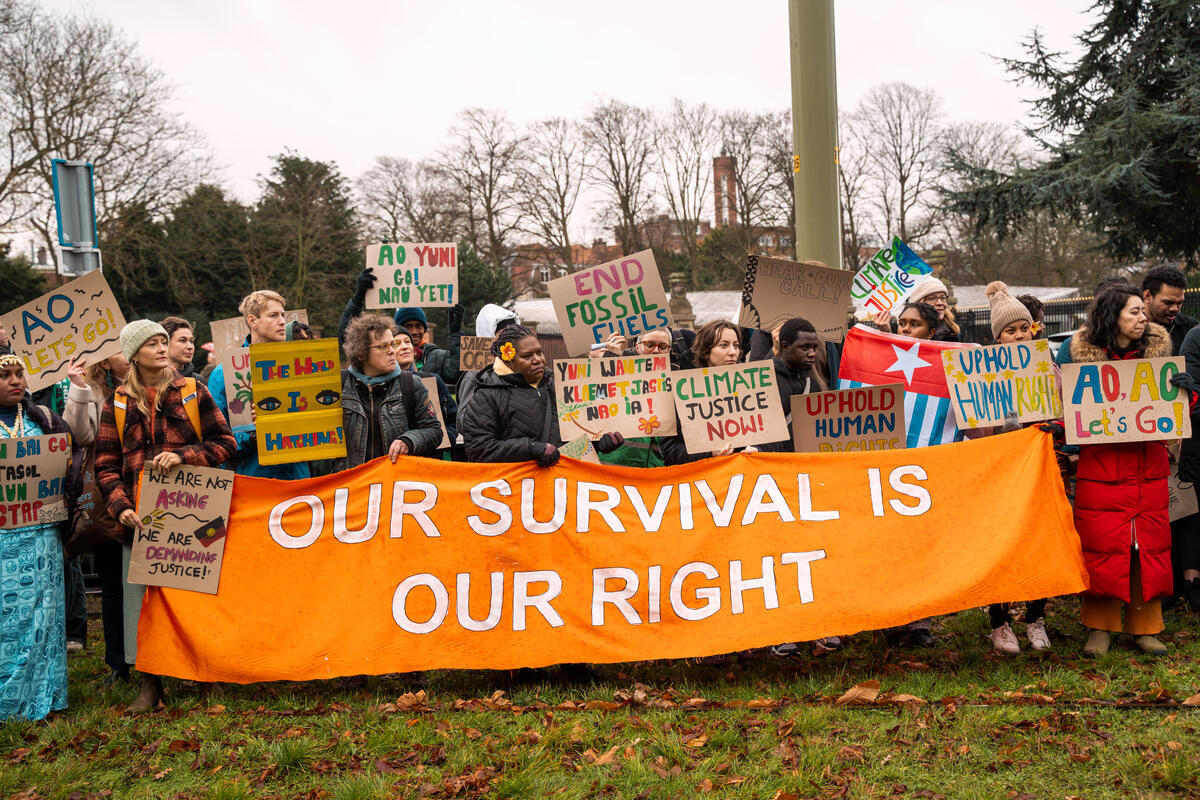
Timeline to today: The push for climate justice
1. 2022-2023: A series of key mobilisations took place across the Pacific, with strong advocacy from civil society, indigenous leaders, and youth activists, who pushed for the inclusion of climate change in human rights discourse.
2. On March 29, 2023, the 77th session of the United Nations General Assembly (UNGA) adopted the resolution A/77/L. 58, requesting an advisory opinion from the International Court of Justice (ICJ) on the obligations of States with respect to climate change. The resolution was adopted by consensus.
3. 2024: The legal proceedings are now underway, and the submissions have been submitted to the Court. Countries, legal experts, and civil society organisations have weighed in on what the ICJ’s opinion should be. The outcome of this case will be a critical step in the fight for climate justice, as it will provide a legal foundation for holding states accountable for their climate actions (or lack thereof).
Pacific stories inspired this historic campaign — now we will help sail these stories to a momentous conclusion and be part of a global family that protects current and future generations from the most harmful impacts of the climate crisis. Follow us live from the Hague!


